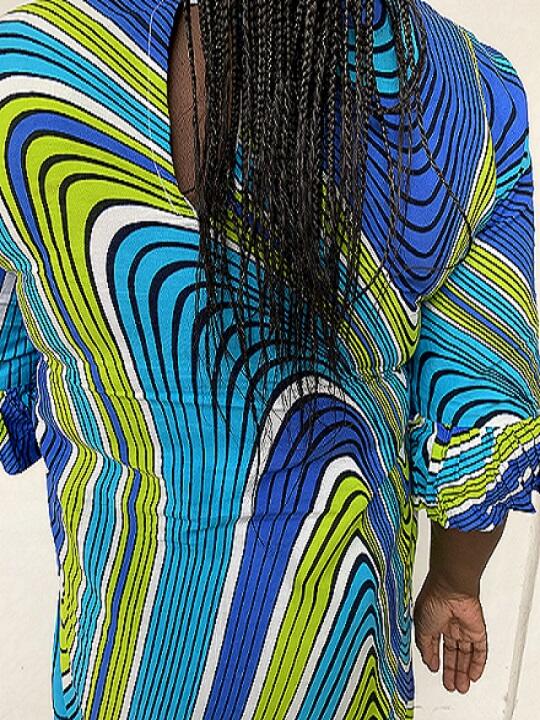The first thing about Farida (Not her real name) was her black eyes against her matte charcoal black hair. “My son would be 3 in Nov.” She smiled slightly. “His name is Ahmed”, she quickly added. I was amazed at Farida’s composure as she seemed to have a flow in life. Her mantra was “through hard work and dedication, anything is achievable”, the driving force behind her dream to be an entrepreneur.
Living in one of the lowliest communities in Accra, Farida makes a living by helping shoppers at busy markets in Accra. On weekends, she attends the Ussher Poly Clinic Fashion Centre for adolescent girls, where she empowers herself with dressmaking skills.
Farida was born and raised in one of the rural areas in Ghana, Zabzugu Tamale, in the Northern Region. She got married at 16, and became pregnant shortly afterwards. She noticed the changes in her body and did not really understand what was happening to her. “I didn’t even know that if I slept with a man, I would have a baby”, Farida mentioned.
During her early stages of pregnancy, Farida’s small town in Tamale lacked the resources needed to help her make informed decisions about contraception and pregnancy. Over the past 3 years, Farida has become pregnant three times, gave birth to one and had two abortions. Ahmed was delivered at home by a local midwife. She explained how she bled from injuries sustained during childbirth.
Farida was encountered during an outreach to Old Fadama. She was a bit unfriendly towards the team initially, but opened up about her experiences with child marriage and early pregnancy as the team interacted with her. She spoke about how in Tamale, marriage at a tender age was a norm and a culture. She recalled a situation where some of her relatives and relatives of her father’s close friend came to ask for her hand in marriage at age 16. “I was called out of school to come home and meet with the visitors”, she said. She also outlined some of the setbacks she faced since she left school and how her job as a ‘kayayoo’ (female head porter) came with many challenges, such as sexual assault from truck pushers, bus conductors and drivers.
Curious to know about why she chose to be a head porter over being a petty trader, she explained that most head porters including her were promised of a better future in the big city. She explained how teenage pregnancy was common within her trade group, how women and girls migrated from northern Ghana to the south in search of greener pastures and the unfortunate hardships they go through to make ends meet.
She admitted being sexually active, she was informed about family planning and referred her to health service providers, who introduced her to the various the methods available. She turned down the request to visit a health service provider because she believed that was her husband’s decision to make. Condom use during sexual intercourse was recommended to her and she promised to inform her husband about it.
Convincing Farida to go for HIV testing was difficult, but worthwhile. The team told her about the benefits of taking an HIV test and how knowing her status would benefit her relationship with her husband.
After taken the HIV test, she was excited about her HIV status. It was such a warm moment as she pulled me away from the crowd and gave me a hug. This made me realized the importance of providing comprehensive information on adolescent sexual and reproductive health and rights (ASRHR) to young people through comprehensive sexuality education. Through the support of UNFPA, such outreaches will ensure that “no one is left behind” in information or services.


